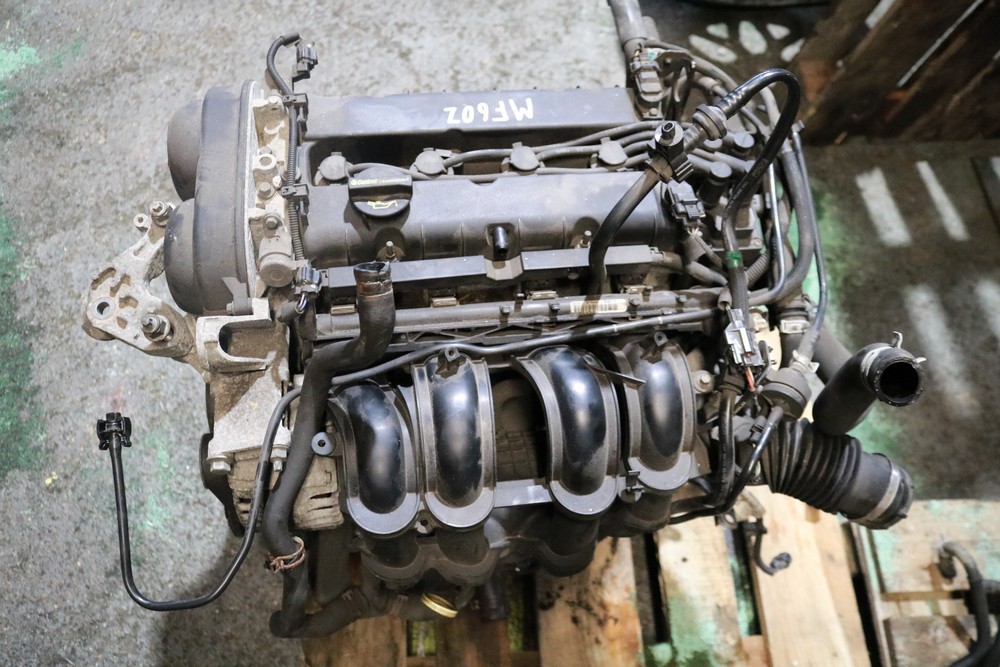Unlocking the Power of Engines: A Comprehensive Overview to Performance and Efficiency
Understanding the detailed mechanics of engines is vital for both performance enthusiasts and daily motorists. The solutions may redefine our technique to engine performance and efficiency in methods that are both enlightening and necessary.
Recognizing Engine Essentials
What comprises the fundamental mechanics of an engine? At its core, an engine is a device developed to transform fuel right into mechanical power with a collection of controlled surges or combustion processes.
The crankshaft after that changes this linear movement into rotational energy, which inevitably powers the automobile. The camshaft regulates the opening and closing of the shutoffs, managing the consumption of air and fuel and the expulsion of exhaust gases. In addition, the engine relies upon a carefully adjusted fuel-air combination, ignition system, and cooling system to make sure optimal efficiency and effectiveness.
Understanding engine essentials likewise entails recognizing the importance of engine cycles, such as the four-stroke cycle, which includes consumption, compression, exhaust, and power strokes. Each stage is vital in ensuring the engine functions smoothly and properly. Proficiency of these essential technicians prepares for exploring more complicated engine dynamics and performance metrics, vital for optimizing both power result and effectiveness.
Trick Performance Metrics
Key performance metrics are essential for reviewing an engine's efficiency and power outcome, offering important insights for both producers and customers. These metrics act as benchmarks for engine performance, enabling informed choices in design, manufacturing, and purchasing.
One of the main metrics is horsepower, which measures the engine's ability to perform job over time. Torque, determined in pound-feet, is an additional crucial statistics that suggests the engine's rotational pressure, directly impacting acceleration and towing capacity. Gas performance, generally gauged in miles per gallon (MPG) or litres per 100 kilometers (L/100km), assesses how properly the engine converts gas right into motion, influencing ecological considerations and functional expenses.
Additionally, thermal efficiency measures just how well an engine transforms gas power into helpful work, exposing understandings into power losses largely via warm. Discharge degrees, including CO2 and NOx, are additionally essential, mirroring the engine's environmental impact and compliance with regulative criteria.

Tuning Techniques for Effectiveness
Tuning strategies play a significant function in boosting engine performance by optimizing performance metrics recognized in earlier discussions (ford fiesta engine). Various approaches exist to adjust an engine, each adding to improved gas economic situation and decreased emissions
One effective strategy is changing the air-fuel ratio, ensuring the engine runs within the ideal combustion routine. A leaner mixture can improve fuel performance, but it has to be stabilized to stop misfires or engine knock. In addition, reprogramming the engine management system can rectify parameters such as ignition timing, which better boosts effectiveness while preserving power output.
Another vital technique involves modifying the consumption and exhaust systems. Upgrading to high-performance air filters and exhaust headers can minimize back pressure, facilitating much better air movement. This allows the engine to breathe even more openly, causing enhanced combustion efficiency.
Moreover, the application of advanced adjusting devices, like dyno testing, supplies accurate information that allows targeted changes. Consistently keeping an eye on these performance metrics guarantees that adjusting efforts generate the wanted effectiveness end results. Jointly, these techniques not just bolster engine efficiency however additionally add to long-term sustainability in engine procedures.
Upkeep for Optimal Performance
Routine engine upkeep is essential for accomplishing optimum efficiency and longevity. A properly maintained engine not only runs successfully however also reduces the risk of expensive repairs and malfunctions. Trick elements calling for regular interest consist of oil, filters, belts, and stimulate plugs.
Transforming the engine oil at suggested periods is essential, as oil lubricates relocating components and protects against overheating. Changing oil and air filters makes certain that impurities do not impair engine feature. Neglecting these components can lead to reduced efficiency and possible engine damages.
In addition, inspecting and changing used belts and hoses is important to stop sudden failures. Timing belts, in specific, ought to be replaced according to the manufacturer's timetable to stay clear of devastating engine damage.
Ignition system should also be examined and replaced as necessary, since they play a crucial duty in ignition and gas effectiveness.
Future Patterns in Engine Modern Technology
Welcoming improvements in modern technology, the future of engine layout is positioned to reinvent efficiency and efficiency across various applications. Among the most substantial patterns is the shift towards electrification. Hybrid and totally electrical powertrains are ending up being increasingly conventional, using reduced exhausts and improved look what i found gas performance. This transition is not just a necessity yet a trend driven by governing pressures and consumer need for sustainable options.
Moreover, advancements in materials scientific research are leading to lighter, more powerful components that boost engine performance while reducing energy usage. Advanced production methods, such as 3D printing, permit the creation of complicated geometries that boost air flow and thermal management, therefore enhancing combustion procedures.
In addition, the integration of expert system and artificial intelligence is readied to transform engine diagnostics and efficiency adjusting. These technologies can assess large quantities of information in actual time, enabling predictive maintenance and tailored performance enhancements.
Verdict
In conclusion, opening the power of engines requires a comprehensive understanding of their auto mechanics and performance metrics. Executing reliable adjusting methods and sticking to Home Page regular upkeep techniques dramatically improve engine abilities.
In addition, the engine depends on a very carefully calibrated fuel-air mix, ignition system, and cooling down system to make certain ideal performance and effectiveness.
Understanding engine fundamentals additionally includes identifying the value of engine cycles, such as the four-stroke cycle, which includes intake, exhaust, power, and navigate to these guys compression strokes. Mastery of these essential mechanics lays the foundation for checking out extra complex engine characteristics and efficiency metrics, vital for optimizing both power outcome and performance.

Embracing advancements in technology, the future of engine design is positioned to change performance and efficiency throughout numerous applications.